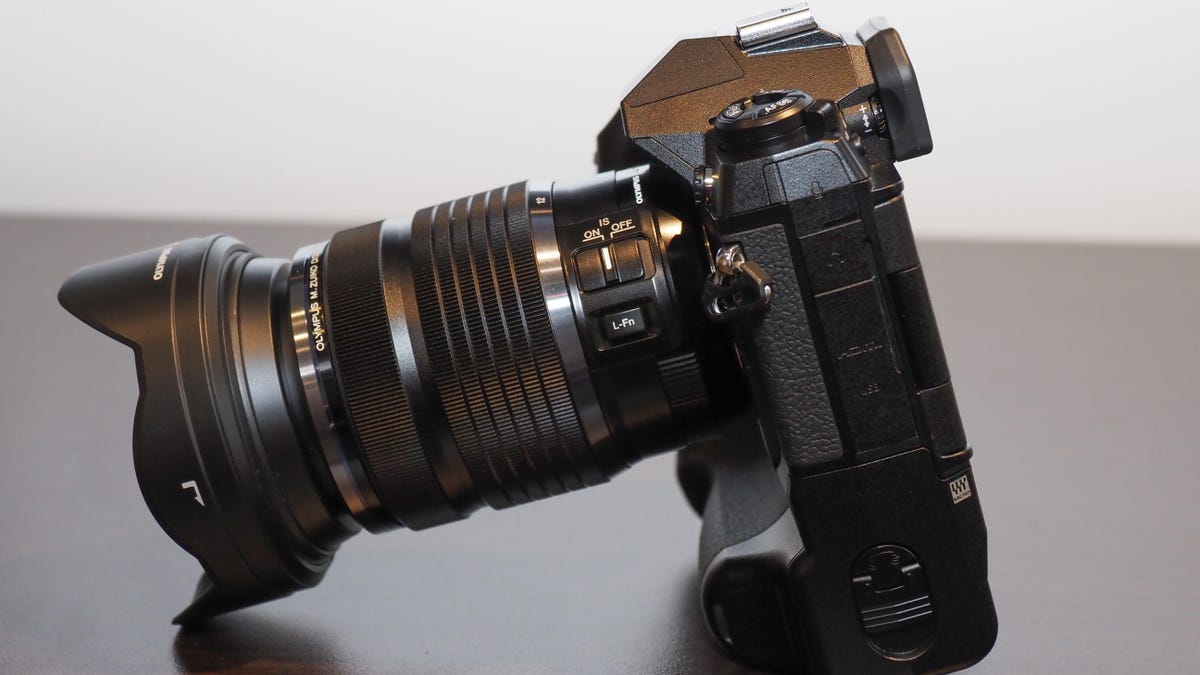Olympus leaves the camera business
The maker of the first designed-from-the-ground-up digital SLR is going the way of Kodak, Polaroid and other historic camera manufacturers.

Future former camera manufacturer Olympus announced (PDF) Wednesday it has agreed to sell its imaging business to private equity firm Japan Industrial Partners. The deal will be complete by the end of the year. JIP bought Olympus' telecom business in 2012 and snapped up Sony's Vaio computers in 2014, to name a couple investments.
Though cameras is the best known area of Olympus' business, the bulk of its livelihood actually comes from technical equipment: medical devices such as endoscopes.
This leaves Panasonic as the only significant supporter of the Micro Four Thirds standard for still cameras -- it's used by DJI and Blackmagic Design's Micro and Pocket Cinema Cameras, and third-party lenses are still well represented -- but even Panasonic rolled out a full-frame camera line recently.
In its statement, Olympus attributes the decision to the well-known long-term drop in camera sales thanks to phones and increasing competition, as well as the sudden economic shock triggered by the coronavirus pandemic. And leading up to the announcement there were some telltale indicators, including the decision to bring its public relations in-house from an outside contractor, and a special offer to get a free OMD-EM1 series camera with the purchase of three pro lenses (which is still available).
Another probable factor is the postponement of the Olympics to 2021. The Olympics are always a big deal for makers of professional cameras for shooting sports, especially for Japanese companies with this edition of the Games happening in Tokyo. Olympus generally counts on the ability to talk about its more portable designs compared to Canon and Nikon . And despite the latter two companies' expanded line of mirrorless models, they're still emphasizing their massive DSLRs for sports, most notably with the Canon EOS-1Dx Mark III and Nikon D6.
Olympus sent out an email Wednesday from Akihiko Murata, President, Olympus America, Consumer Products Group:
As you are aware, the Imaging industry has experienced marked declines for several consecutive years. The market is contracting as the smartphone industry grows, and competition has been steadily increasing in the mirrorless interchangeable lens camera segment.
Due to these long term trends as well as recent market contractions due to COVID-19, the Olympus Imaging Business Unit has signed a memorandum of understanding (MOU) with Japan Industrial Partners, Inc. (JIP). According to the MOU, both companies are entering into further discussions about the potential transfer of Olympus' long-standing Imaging business to JIP by the end of 2020.
During these discussions, Olympus Imaging will operate business as usual and will continue to deliver innovations to our customers, launching new products as planned. Olympus and JIP are committed to providing our stakeholders full transparency about our intentions as plans solidify.
For more details, please also refer to our corporate disclosure "Signing of Memorandum of Understanding for Divesture of Imaging Solutions Business" dated June 24, 2020.
On a personal note, this makes me sad. Olympus created one of the first DSLRS that wasn't a repurpose of a film design, the E-1 , which I loved (I can't find my review of it, but here's my 2008 review of its successor, the E-3). Olympus lagged the rest of the market adding 4K video to its feature set, but I like its lenses and camera designs more than Panasonic's.
And unlike well-known camera veterans who went the way of the brand sellout, like Kodak and Polaroid, Olympus has been consistently innovating up to the end, lately with its OM-D E-M1x and OM-D E-M1 Mark III. Micro Four Thirds cameras don't deliver the low-light image quality of most APS-C or full-frame, but they can't be beat for compact size.
I reached out to Olympus for additional comment but didn't immediately hear back.

